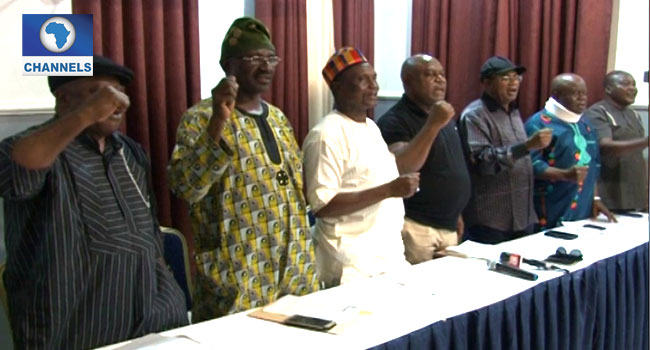The Federal Government may have more troubles to contend with regarding labour issues, as the non-teaching staff unions of Nigerian government universities have resolved to embark on an indefinite strike.
Rising from a Joint Action Committee meeting of non-teaching unions on Wednesday in Abuja, the leadership directed their members across the country to down tools with effect from Monday, September 11.
Present at the meeting are members of the Senior Staff Association of Nigerian Universities (SSANU), the Non-Academic Staff Union of Universities (NASU), and the National Association of Academic Technologists (NAAT).
They are demanding the immediate payment of earned allowances, as well as a review of the universities governance system.
Speaking after the meeting, Chairman of JAC and SSANU President, Samson Ugwoke, noted that the industrial action would be “total and comprehensive”.
According to him, there will be no provision of services from members of the union during the strike, no matter how skeletal.
Ugwoke said concessions would not be granted while all union members would stay at home until further notice, unless as directed by JAC through their respective presidents.
This is coming at a time when the government is still struggling to resolve the strike embarked upon by the Academic Staff Union of Universities (ASUU) three weeks ago.
On August 14, the National President of ASUU, Dr Biodun Ogunyemi, announced the commencement of the industrial action after a meeting of the National Executive Council (NEC) of the union in Abuja.
The union had directed members in its branches across the country not to attend statutory meetings of any kind.
Ogunyemi, who declared a ‘total, comprehensive and indefinite’ nationwide industrial action, had also said there shall be “no teaching and no examination” during the strike.
He had blamed the decision on government’s failure to fully implement the 2009 FGN-ASUU Agreement and the 2013 Memorandum of Understanding (MoU).
Some of the reasons stated by ASUU were payment of fractions/ non-payment of salaries; non-payment of Earned Academic Allowances (EAA); non-release of operational license of NUPEMCO and the non-implementation of the provisions of the 2014 Pension Reform Act with respect to retired professors and their salaries.
Others include the removal of Universal Staff Schools from funding by government; funds for the revitalisation of Public Universities (Implementation of Needs Assessment Report), as well as the poor funding of existing State Universities and proliferation of universities by their visitors among other issues.
CHANNELS. TV
